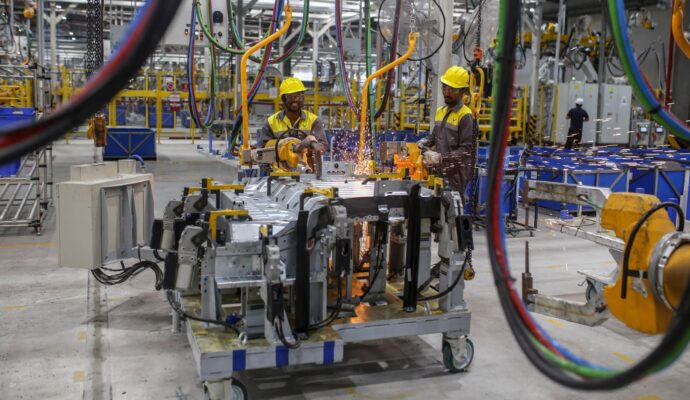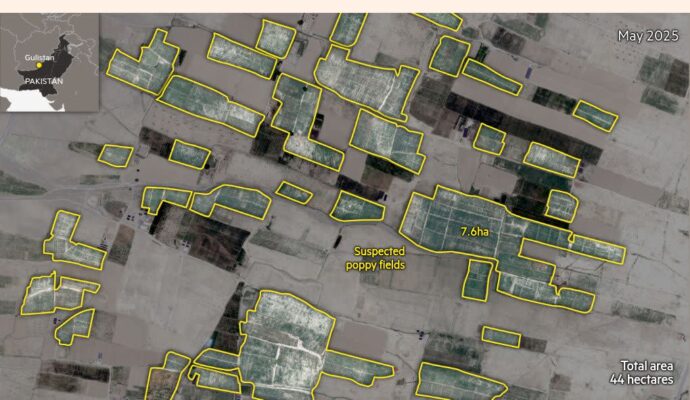
Hello and welcome to Energy Source, coming to you from New York and London today.
My FT colleague Malcolm Moore has written a profile of Albert Manifold, who is due to replace Helge Lund as chair of BP later this year. The troubled oil major announced on Monday that the 62-year-old Irish executive would join the company as chair-elect on September 1 and take over from incumbent Lund a month later.
Manifold, who was formerly chief executive of building materials giant CRH, is described by people who know him as a “shrewd operator” with the drive, discipline and focus on shareholder returns that BP badly needs.
Lund is leaving BP earlier than anticipated, amid an activist campaign targeting the company’s poor share price performance. At the start of April, BP said Lund planned to step down “most likely during 2026”.
Today we focus on growing fears in the US that it is too reliant on China for critical minerals and the rare earth metals used in high-tech products and weapons.
Thanks for reading, Jamie
Mining boss calls for US critical minerals stockpile
The US government is in urgent need of a stockpile of critical minerals including the rare earth metals that are heavily dominated by China, according to the head of a new mine in the state of Wyoming.
Speaking to Energy Source, Randall Atkins, chief executive of Ramaco Resources, said a critical minerals stockpile was a “long overdue matter that the government needs to address”, pointing out that China had “rather effectively used rare earths as a critical negotiating point with us” in recent months.
Rare earth metals are used in the production of the permanent magnets that go into a range of vital supply chains including in the automotive, defence and energy sectors. The production of the materials — which are not especially rare but are difficult to find in deposits that are economically viable to mine — is controlled almost entirely by China, a vulnerability that western governments have become increasingly anxious about.
In retaliation against the imposition by US President Donald Trump of a range of import tariffs this year, China imposed restrictions on the export of several crucial rare earths and magnet products. That caused a scramble among western companies to source the materials, which they do not typically hold in large quantities.
The squeeze made clear that “a critical minerals stockpile is necessary”, said Atkins.
Ramaco plans to produce commercial quantities of rare earths — including the so-called heavy rare earths that China has a particular stranglehold on — for western customers by 2028.
The groundbreaking ceremony for the Brook Mine project this month, the first new rare earths mine in the US in more than 70 years, came as the US government penned a deal with Ramaco’s rival miner, Las Vegas-based MP Materials.
In an effort to boost the domestic production of rare earths and reduce the US’s reliance on China, the Department of Defense struck a sweetheart deal with MP that has drawn controversy and criticism from others in the sector. The agreement guarantees a decade-long price floor for MP’s rare earths at nearly double the current market rate, among other things.
Atkins said the tie-up was “a template” for the kind of support that the sector needed. New rare earths producers needed assurances that buyers would pay a price for their material that was not subject to “the Chinese manipulation of the market”, he said.
MP halted exports to China, which accounted for the majority of its revenues in 2024, this year as the Sino-US trade war escalated.
“MP was in danger” given the tariff environment, said Atkins. “I don’t think the government wanted to see a US flagship rare earths producer go down. They were a very logical party to construct a model of a business relationship [with], and I do think [the government] will do it with others because it does make sense.”
Ramaco has drawn support from the Trump administration, including from energy secretary Chris Wright, who has asked the company to accelerate its plans to develop its rare earths operations.
Atkins said the group was working to speed up how quickly it would be able to start producing material, and planned to be able to provide samples to potential customers by the middle of next year.
The company is developing a rare earths mine and a facility to process the material.
The construction of Ramaco’s full-scale commercial facility, or “Big Box” plant, would begin next year and be operational by the end of 2027 or in 2028, said Atkins. The company hopes to be able to supply a “substantial portion” of the rare earths needed by the US.
Atkins said Ramaco was starting “full-blown outreach” to potential customers, including companies and the US government.
Ramaco did not have any government funding, but would be looking to put together a financing package for the roughly $500mn needed for the Big Box facility, which could include public and private sector investments, said Atkins. (Camilla Hodgson)
Power Points
Shell and other leading energy groups have abandoned a six-year-long attempt to define a “net zero” emissions strategy after being told that such a standard would require them to stop developing new oil and gas fields.
BYD has criticised the UK’s new electric car subsidy scheme designed to keep out Chinese brands as “stupid”.
Ministers are preparing to reduce the UK government’s stake in the Sizewell C nuclear project by more than expected.
Energy Source is written and edited by Jamie Smyth, Martha Muir, Alexandra White, Kristina Shevory, Tom Wilson, Rachel Millard and Malcolm Moore, with support from the FT’s global team of reporters. Reach us at energy.source@ft.com and follow us on X at @FTEnergy. Catch up on past editions of the newsletter here.
Recommended newsletters for you
Moral Money — Our unmissable newsletter on socially responsible business, sustainable finance and more. Sign up here
The Climate Graphic: Explained — Understanding the most important climate data of the week. Sign up here


